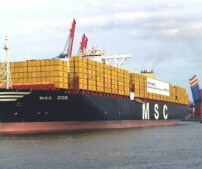Cargo Flight Launches a Vital Link in the Ebola Response Effort
MIT Supply Chain
JANUARY 15, 2015
A shipment of medical equipment that arrived on January 12, 2015, in Monrovia, Liberia, from Miami, US, will enable 25 government hospitals to receive infection control training, helping the facilities which were partially or fully closed owing to the Ebola crisis to recommence regular operations.















Let's personalize your content